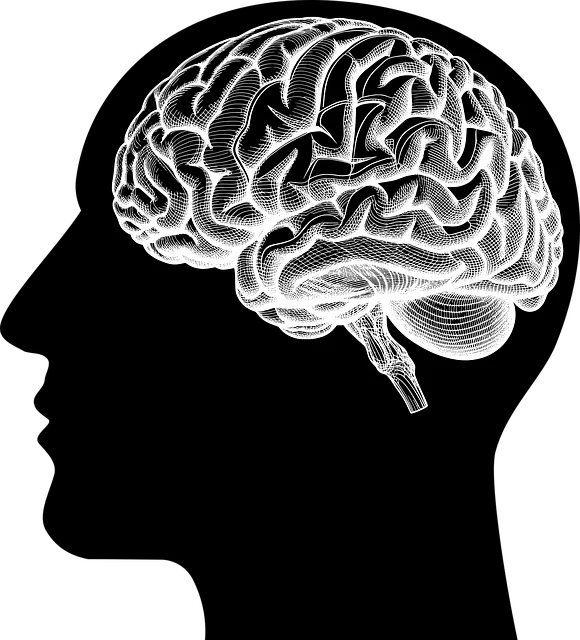The Kaiser Permanente Mental Health Access Center in Colorado Springs offers specialized social skills training for individuals with mental health conditions, using holistic methods that go beyond traditional therapy. Their program focuses on navigating relationships, addressing anxiety, depression, and trauma-related challenges, and enhancing quality of life through tailored support services and risk assessment. The center's innovative approach includes evidence-based strategies like Mind Over Matter, structured training in communication skills, empathy building, and conflict resolution, all within a culturally sensitive environment that respects diverse identities. This comprehensive method complements clinical treatments, empowering individuals to manage social situations effectively and actively participate in their recovery journeys.
Social skills training is a powerful tool for individuals with mental health conditions, offering a path to improved relationships and enhanced well-being. This article explores how such training can be a game-changer in managing conditions often characterized by social isolation. We delve into the significance of programs like the Kaiser Permanente Mental Health Access Center in Colorado Springs, which provides tailored support. By understanding individual needs and employing evidence-based strategies, these centers facilitate meaningful connections, ultimately integrating social skills training into comprehensive treatment plans.
- Understanding Social Skills Training for Mental Health Conditions
- The Role of Kaiser Permanente Mental Health Access Center Colorado Springs
- Assessing Individual Needs in Social Skills Development
- Evidence-Based Strategies for Effective Training Sessions
- Integrating Social Skills Training into Comprehensive Treatment Plans
Understanding Social Skills Training for Mental Health Conditions

Social Skills Training is a specialized approach designed to help individuals with mental health conditions navigate and improve their social interactions. It’s a crucial aspect of holistic treatment, especially for those seeking support at Kaiser Permanente Mental Health Access Center Colorado Springs. This type of training goes beyond traditional therapy by focusing on practical skills needed to engage in meaningful social relationships. The program equips participants with strategies to understand social cues, initiate conversations, and maintain connections, which are often challenging due to conditions like anxiety, depression, or trauma.
Trauma Support Services within these programs are tailored to address complex needs stemming from past traumas. They encourage individuals to process their experiences while fostering healthy coping mechanisms in social settings. Moreover, risk assessment is a critical component for mental health professionals, helping them identify potential triggers and develop proactive strategies for managing client interactions. By integrating such approaches, Kaiser Permanente offers comprehensive care that not only addresses symptoms but also enhances the overall quality of life for individuals dealing with mental health challenges, including Depression Prevention initiatives.
The Role of Kaiser Permanente Mental Health Access Center Colorado Springs

The Kaiser Permanente Mental Health Access Center Colorado Springs plays a pivotal role in enhancing mental wellness within the community. This center is dedicated to providing comprehensive support and resources for individuals dealing with various mental health conditions. Through its robust services, it aims to bridge the gap between care and accessibility, ensuring that everyone receives the assistance they need. The center offers specialized programs tailored to different demographics, recognizing the unique challenges faced by each group.
One of its key strengths lies in delivering innovative training programs. These include educational sessions on positive thinking and cultural competency for healthcare providers, empowering them to offer more empathetic care. Moreover, the center emphasizes risk management planning for mental health professionals, a crucial aspect of ensuring practitioner safety and maintaining high-quality patient outcomes. By focusing on these aspects, Kaiser Permanente Mental Health Access Center Colorado Springs is not just treating mental health issues but also fostering a supportive environment for both patients and healthcare workers.
Assessing Individual Needs in Social Skills Development

Assessing individual needs is a critical step in social skills training for mental health conditions. The Kaiser Permanente Mental Health Access Center Colorado Springs recognizes that every person’s journey with mental health is unique, influenced by personal experiences, cultural backgrounds, and specific diagnoses. Therefore, their approach involves comprehensive assessments to tailor interventions effectively. By evaluating areas like communication patterns, emotional regulation, and interpersonal interactions, the center can pinpoint strengths and challenges. This enables them to create personalized treatment plans that cater to diverse needs, including those related to Cultural Sensitivity in Mental Healthcare Practice.
Understanding cultural contexts is paramount in mental health awareness. The center’s experts consider how cultural factors may impact an individual’s social skills development and overall recovery. Whether addressing symptoms of depression prevention or other conditions, they strive to provide inclusive support that respects and embraces diverse identities. This tailored approach ensures that the training is not only effective but also culturally sensitive, enhancing the effectiveness of the social skills development process.
Evidence-Based Strategies for Effective Training Sessions

Effective social skills training for mental health conditions relies on evidence-based strategies that foster meaningful connection and improve quality of life. The Kaiser Permanente Mental Health Access Center in Colorado Springs leverages these principles to provide tailored support. One key approach is integrating Mind Over Matter principles, focusing on self-awareness exercises that help individuals recognize and manage their emotions, enhancing their ability to engage socially.
Additionally, the Community Outreach Program Implementation plays a vital role in creating inclusive environments. Through structured training sessions, participants learn practical communication techniques, empathy building, and conflict resolution skills. These strategies are taught within a supportive network, encouraging real-life practice and positive reinforcement. Such comprehensive methods not only equip individuals with essential tools for social interactions but also foster a sense of belonging and resilience.
Integrating Social Skills Training into Comprehensive Treatment Plans

Social Skills Training (SST) is an integral component of comprehensive treatment plans for individuals managing mental health conditions. At the Kaiser Permanente Mental Health Access Center in Colorado Springs, SST is tailored to address specific challenges faced by patients. This approach recognizes that successful recovery involves more than just medical interventions; it requires individuals to navigate social environments with confidence and ease. By integrating SST into treatment, the center ensures a holistic support system that enhances emotional regulation and fosters meaningful connections within the community.
The Community Outreach Program Implementation at Kaiser Permanente Colorado Springs prioritizes SST as a key strategy for improving patient outcomes. This program aims to equip individuals with essential conflict resolution techniques, communication skills, and social interaction norms, thereby boosting their overall well-being. Through targeted workshops and individualized coaching, patients gain practical tools to manage social situations, reduce anxiety, and improve their ability to engage in meaningful relationships. Such initiatives not only complement clinical treatments but also empower individuals to actively participate in their recovery journeys.
Social skills training, as an integral part of comprehensive treatment plans, offers individuals with mental health conditions a powerful tool for improving their overall well-being. The evidence-based strategies discussed in this article, combined with the expertise of centers like the Kaiser Permanente Mental Health Access Center Colorado Springs, can significantly enhance social interactions and support positive outcomes. By understanding individual needs and integrating tailored training, folks can navigate social environments more confidently, fostering connections and a sense of belonging that are essential for a fulfilling life.






